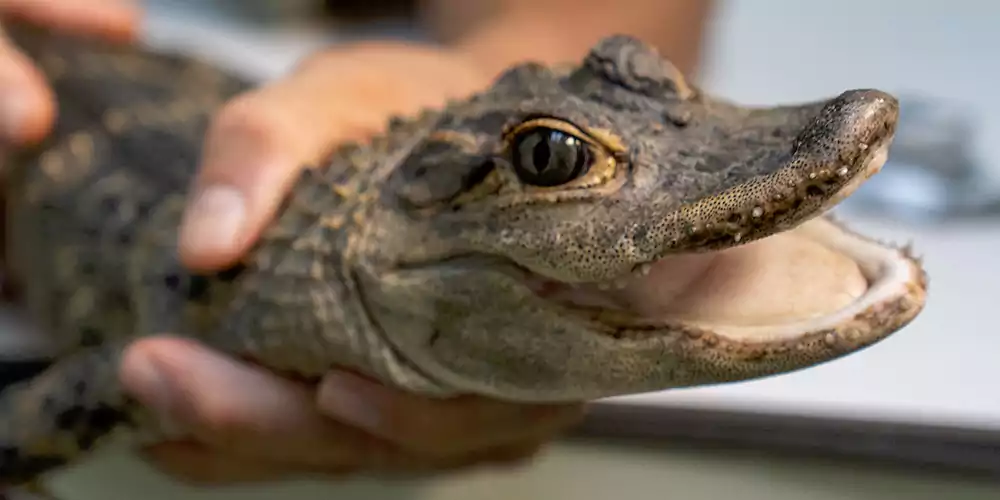Why Having a Pet Alligator Isn’t a Good Idea

As an animal enthusiasts, we all have our favorite pets – dogs, cats, birds, or exotic animals. However, it’s important to remember that some animals should not be kept as pets, no matter how fascinating or cute they may seem. One such animal is the alligator – a giant, carnivorous reptile found in certain parts of the world.
In this article, we’ll explore why having a pet alligator is not a good idea and why leaving these animals in their natural habitats is crucial.
Hey, this is Danial; today, we discuss why having a pet alligator isn’t a good idea. These animals may seem impressive, but one must understand the risks and dangers of owning one. As a responsible pet owner, it’s essential to consider various factors before bringing an alligator into your home. This article will outline why having a pet alligator isn’t a good idea and the risks and dangers associated with it.
First and foremost, it’s essential to differentiate between being permitted to own an exotic pet and doing so. At Alligator Fascination, we strongly advise against holding a crocodile. Even if you love them and other reptiles, taking on ownership challenges is not recommended. Ownership of alligators is expensive, dangerous, and unsuitable for many people. Here are some reasons why:
Legal Issues with Pet Alligator
First and foremost, it’s essential to understand the legal issues associated with owning an alligator. Holding an alligator may be illegal or require special permits, depending on your location. Even if it’s legal to own an alligator, strict regulations may be in place to ensure the safety of both the owner and the public. Violating these regulations could lead to hefty fines or even criminal charges.
Potential Risks and Dangers
Even if you’re legally allowed to own an alligator, you must know the potential risks and dangers of having such an animal as a pet. Alligators are wild animals that have a strong predatory instinct. As a result, they can be unpredictable and dangerous, even to their owners.
Alligators can become very large, and as they grow, they require more space and specialized care. They also have specific dietary requirements and need access to water for swimming and cooling down. Neglecting these needs could result in health issues, including malnutrition and dehydration.
In addition to the risks of inadequate care, there’s also the possibility of physical harm. Alligators have powerful jaws and sharp teeth, which can cause severe injury or even death. Even if the alligator is small, they can still cause harm, and it’s important to remember that they are not domesticated animals.
Alligator Attacks
Alligator attacks are rare but can occur, especially when the animal is in an environment, it perceives as a threat. Even a well-cared-for alligator can become aggressive if it feels threatened or provoked. This is why alligators are often found in the wild or specialized facilities where professionals can monitor and manage them.
Alligator attacks can be fatal, and it’s crucial to avoid situations where these incidents could happen. Alligator owners must take the necessary precautions to ensure their alligator is not a danger to themselves or others.
13 Reasons an Alligator Isn’t a Good Pet
FAQs Having Pet Alligator
While alligators may seem fascinating and impressive, they are not suitable pets. They are wild animals that require a specific environment and diet to survive. Their size, strength, and predatory nature make them dangerous to handle, and their long lifespan and high maintenance costs make them unsuitable for most people. Furthermore, owning an alligator contributes to the illegal wildlife trade, which harms these animals’ survival in their natural habitats.
Now you know how lovely alligators are. Jokes aside, we in no way, shape, or form to having pet alligators. If you are our regular visitor, you must know Miss. Sarah. She served his life to make the world better for pets. She is one of the best authors I know. So check out her blog on rabbits as pets. And If this article helps you or you learn anything new, hit the like button gently, leave a comment, and remember, no matter what, always love your pets.